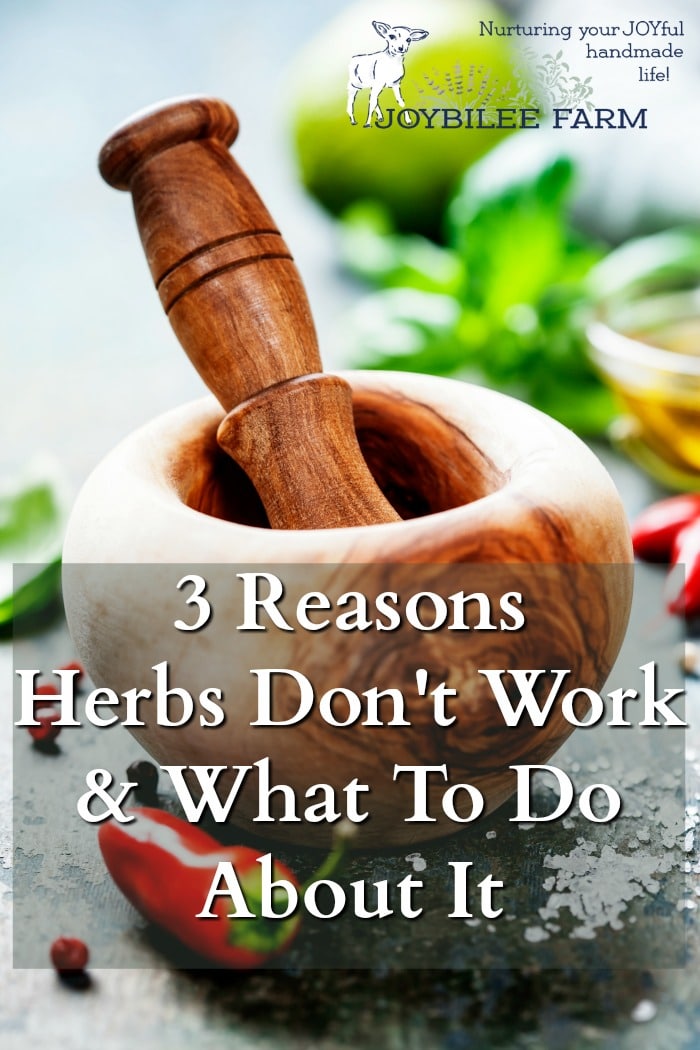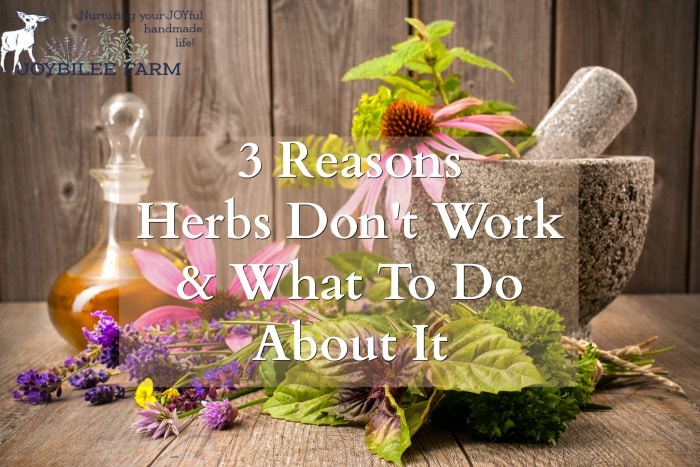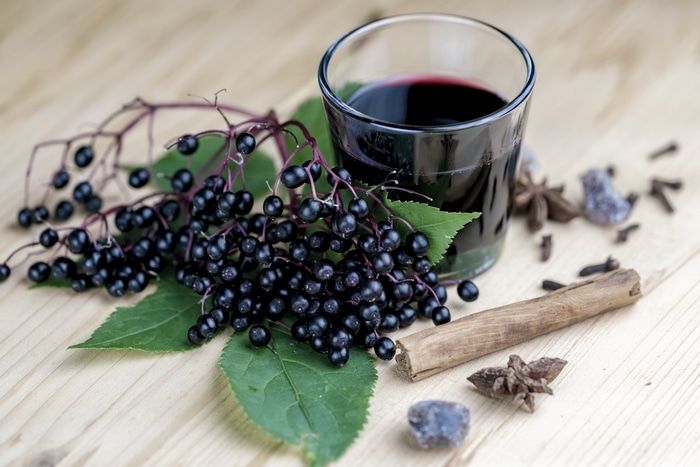3 Reasons Herbs Don’t Work and What To Do About It
Understanding herbal energetics may be the key to finding the sweet spot between herbal remedies, personal constitution, and herbs that heal. When herbs don’t work here’s what you can do.
Sometimes herbs don’t work. You may have followed the herbal advice you found in a book or on the internet. You followed the recipe and took the remedy. But the herbs failed to help you find relief. What went wrong? Are the herbs at fault? Or maybe there is something deeper. Let’s talk.

When Herbs Don’t Work
Herbs are not like chemical drugs. They aren’t a one size fits all remedy. Well, now that we think about it, few prescription drugs are a one size fits all remedy. (Except maybe chemo and radiation treatments for cancer. But I digress.)
There are three main reasons why an herb might work for one person and not for another. These reasons are important to understand when you are new to herbs. Since herbs work in support of the body’s own healing mechanisms a person’s individual constitution has a lot to do with how that person’s body works with individual herbs.
Individual constitution
If you are a woman of a certain age you may have experienced night heat. Some of us say we have our own personal summer. Have you woken in the middle of the night hot and sweating, the sheets drenched, and it’s not even warm outside. If so you may have a personal constitution that is hot and moist.
On the other hand, your spouse may have cold hands and feet, with skin that cracks from the dryness. This person has a cold, dry constitution.
There are four possible constitutions. But people aren’t necessarily only one. You can vary in your constitution depending on your stage in life, the time of the month, and even the season of the year. However, the constitution of a person is generally pretty stable over a longer period of time.

The four constitutions are:
- Hot and moist
- Hot and dry
- Cold and moist
- Cold and dry
Depending on the herb that you take, you may find that the herb increases your normal heat or dryness making you feel unpleasant, or the herb can soothe your normal constitution by bringing the opposite qualities.
Herbal energetics
Herbs have natural energies that lean toward either heating or cooling and moistening or drying. When using herbs to help a person with an ailment a remedy that is warming and moistening might make the woman of a certain age feel a little worse. Whereas a cooling and drying herb might ease some of the discomforts that she feels.
On the other hand, that same cooling and drying herb might make the spouse feel quite a bit worse.
It’s important to understand the energetics of the individual herbs before deciding which herbs are likely to help the most in a given situation.
Thankfully, we don’t have to memorize a long list of herbs and their herbal energetics to make good decisions about which herbs to try. Herbs help us to figure things out by their flavours.
The taste of herbs
Herbs can be sweet, salty, bitter, pungent, or sour. Sweet herbs like marshmallow are generally moistening. Whereas bitter herbs like grapefruit peel and motherwort are generally drying and cooling. Salty herbs like orach are high in minerals and nutritive. Pungent herbs like cayenne pepper are generally drying and warming. Sour herbs are generally drying and cooling. Many herb reference books will offer the herbal energetics in the Materia Medica section of the herbal.

Condition of Affliction
When you are ill the affliction can shift your normal constitution. You know the feeling when you first notice a cold coming on. You may have a dry, scratchy throat and hot, sore muscles. After a few days, your throat is mucusy and you are sneezing, or your sinuses are plugged. While you may still be warm, you are not dry. If anything, you wish you were a little dry.
After a few days your sinuses dry up and you might have a residual cough that is dry and unproductive and seems to linger. Back to dry.
Herbal remedies can balance the energetics of your affliction if chosen well. By combining herbs it’s possible to use the best herb for a condition and also find a remedy that addresses the energetics of the illness.
If the condition is dry, moistening herbs will help. If the condition is moist, drying herbs may help. If there is heat or fever, cooling herbs can be a better choice than warming herbs.

Herbs are not one size fits all
When using herbal remedies for self-care, it’s important that you don’t simply substitute an herb for an over-the-counter drug. Herbs support the body’s own healing virtues through their herbal energetics and the body’s own constitution. By finding the sweet spot between herbal energetics, the body’s natural constitution, and the shift in symptoms because of illness, you are more likely to find herbs that help your body heal.
When herbs don’t work
Sometimes herbs don’t work. When that happens it may not be because of a faulty herbal remedy but rather it could be because the appropriate herb was not matched to personal constitution and the constitution of the illness. By exploring herbal energetics in conjunction with the constitution of the person taking the herb you are more likely to find the sweet spot between herbal remedies and the body’s own healing powers.
Find out more about using herbal remedies and making them yourself in the Joybilee Farm Herbal Apothecary course.



So the herb I am taking can be beneficial to my body in general even if it’s not helping in the specific case that I am taking it for, is that correct ?
And how can I combine the herbs together to get a more sophisticated effect than the basic effects that every individual herbs produces on its own ?
thanks for the information it is very helpful.
This makes so much sense! Thank you for sharing this insightful but important aspect of choosing herbs for a remedy.